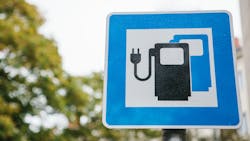I wish I had come up with the term “the culture of electrification,” but alas, I did not. Rather, I heard it when I was interviewing Jose “Pepe” Gutierrez, who is leading NACFE’s efforts in Mexico, for my podcast, Freight Efficiency With Mike Roeth & Friends.
I really like the idea of a culture of electrification because it is all-encompassing. If the trucking industry is going to successfully transition to battery-electric vehicles, we need to look well beyond just the vehicles themselves. We need to begin fostering relationships with utility companies so that we can be sure our sites are set up to handle EV charging now and into the future as we scale the technology across more duty cycles.
We also need to engage a host of stakeholders sooner rather than later so we can build out a charging infrastructure in an orderly, managed fashion. While most EVs initially will be used in return-to-base operations, we need to start now to ensure charging will be available as we extend the range of battery-electric trucks so that drivers will have confidence they can recharge when they’re away from their home base. We need to continue work on finalizing charging standards and agree on how electric use gets measured.
See also: Working together to ensure EV servicing safety
We need to begin working with technical schools on curriculum so that technicians will have the skills needed to safely work on EVs once they see widespread adoption. And we need to develop training modules for our existing technicians, so they are ready when a BEV rolls into the shop. They need to know how to repair them efficiently but also safely. And we need to set best practices for maintenance and repair.
Truck makers and fleets need to work together to ensure that some of the fuel-saving technologies that have proven successful on diesel-powered vehicles are designed properly for EVs and regularly spec’d by fleets. And while the drivers we have spoken with say they love driving EVs, driving an EV is different than driving a diesel truck, so we need to develop driver training around regenerative braking.
I am sure there are other things that need to be dealt with in our culture of electrification because a culture of electrification covers many things.
I think the phrase is a perfect description of what we all need to develop as we work to move to trucking’s electric future.
I only wish I had thought of the phrase myself. Thanks again, Pepe.
Michael Roeth has worked in the commercial vehicle industry for nearly 30 years, most recently as executive director of the North American Council for Freight Efficiency. He serves on the second National Academy of Sciences Committee on Technologies and Approaches for Reducing the Fuel Consumption of Medium and Heavy-Duty Vehicles and has held various positions in engineering, quality, sales, and plant management with Navistar and Behr/Cummins.
About the Author

Michael Roeth
Executive Director
Michael Roeth is the executive director of the North American Council for Freight Efficiency. He serves on the second National Academy of Sciences Committee on Technologies and Approaches for Reducing the Fuel Consumption of Medium and Heavy-Duty Vehicles and has held various positions with Navistar and Behr/Cummins.
